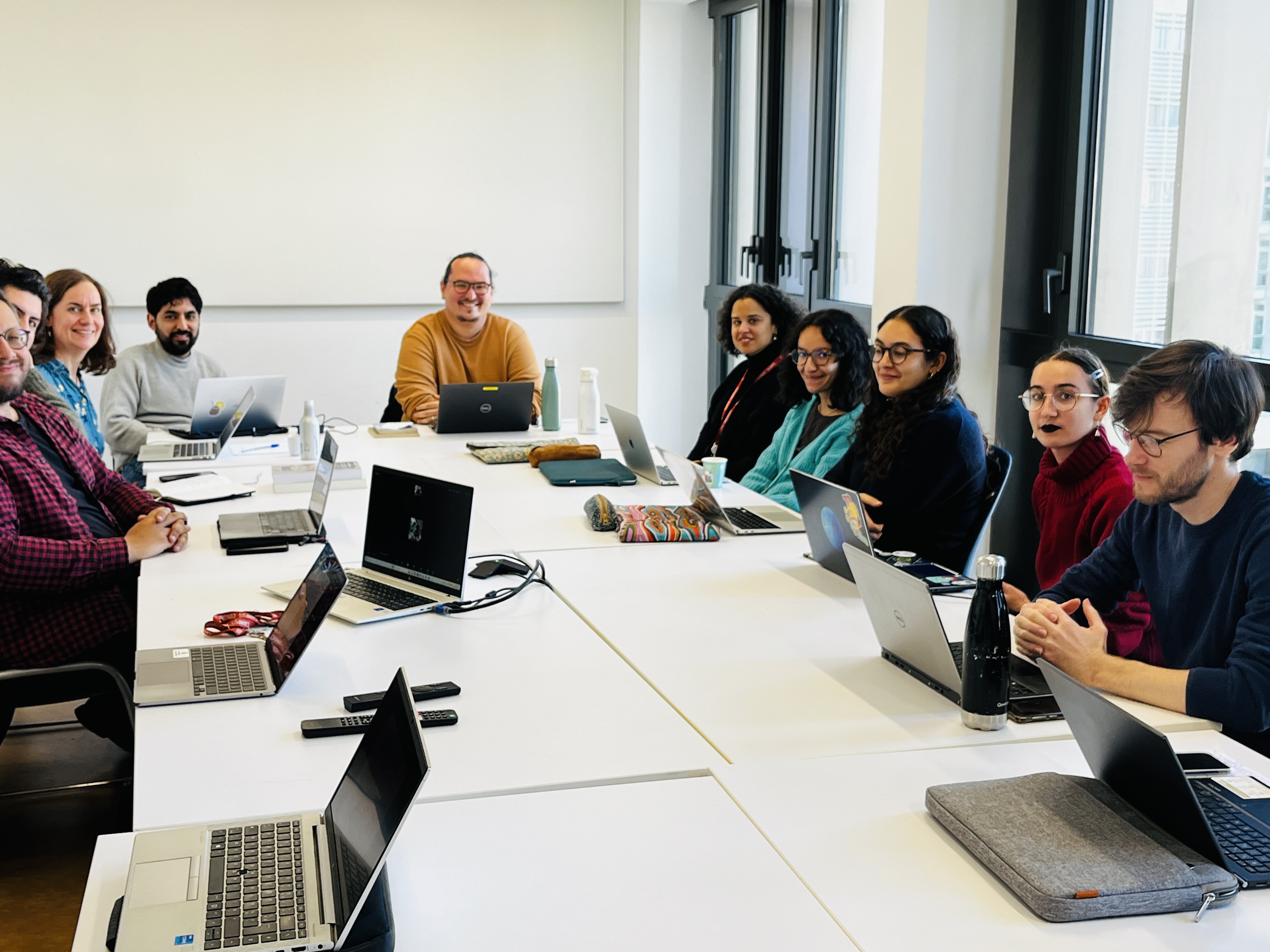History and Societies of Modern and Contemporary Latin America Workshop, École des hautes études en sciences sociales (EHESS); Aubervilliers, France
Kellogg Institute Conference Travel Grants
Conference: History and Societies of Modern and Contemporary Latin America workshop at École des hautes études en sciences sociales (EHESS)
Aubervilliers, France; November 28, 2024
Presentation: Self-management Circulations in Chile in the “1968s”: Between Labor Experiments and Revolutionary Ideals
Report:
 Doctoral Workshop: Modern and Contemporary History of Latin America of the Mondes Américains laboratory at EHESS aims to bring together young researchers working on the modern and contemporary Ibero-American space. It aims to initiate a collective reflection on the Ibero-American area and to decompartmentalize practices and historiographies, often determined by contemporary national logic. The workshop will also provide a forum for discussing research into the relations between Ibero-American spaces and
Doctoral Workshop: Modern and Contemporary History of Latin America of the Mondes Américains laboratory at EHESS aims to bring together young researchers working on the modern and contemporary Ibero-American space. It aims to initiate a collective reflection on the Ibero-American area and to decompartmentalize practices and historiographies, often determined by contemporary national logic. The workshop will also provide a forum for discussing research into the relations between Ibero-American spaces and
Europe, North America, Africa, and Asia and exploring the links between Atlantic, Mediterranean, and Pacific spaces. The workshop aims not to present results but to share methods, theoretical frameworks, tools, and works in progress. It is aimed at doctoral students, as well as master's students and post-docs initiating new research. As the workshop is based on pre-circulated writings, participation implies an active commitment to reading each other's work.
At the November 28, 2024 session, I presented my paper entitled “La démocratie au travail dans le Chili des années 1960 : le PDC et son expérimentation autogestionnaire [workin-progress]”, an article on which I am currently working and which will soon be published. In this communication, I shed light on the self-management experiments carried out in Santiago, Concepción, and Valparaíso during the Chilean PDC government between 1967 and 1970. These experiments took place through a state structure centered on the Servicio de Cooperación Técnica (SCT), a government agency created in 1955, which included the Departamiento de Experimentación de Nuevas Formas de Empresa (ENFE). Around thirty companies were made available to the SCT from 1967 onwards. These companies belonged to a wide variety of production sectors, including textiles, footwear, construction, printing, ship repair, urban transportation, and hotels. Thus, the SCT played a central role, personifying the Chilean state in its negotiations with these companies, many of which had declared bankruptcy, although without projecting onto these experiments a political ideology of emancipation proper to self-management. In this sense, I have proposed this paper, which is intended to be a work-in-progress of our doctoral research and an invitation to reflect on the transnational circulation of self-management ideas in Chile in the 1960s-1970s.
In this doctoral workshop, I presented the stages of the research carried out so far, the article's main argument, the sources, and a historiographical assessment. The article is still being worked on, so the contributions of the colleagues and professors present were of fundamental importance for its continuity and finalization. I was asked questions about substance and form, the sources, the method, and the literature. In addition, professors Geneviève Verdo and Clément Thibaud, organizers of the workshop, helped me understand how the content of this article is articulated with a broader, transnational dynamic and within a dynamic of Catholicism in the Americas. As this is a space for exchanges between specialists in Latin American history, my participation also contributed to my professional insertion as a researcher in the field, broadening my academic network and representing the University of Notre Dame and its Ph.D. in History in the European academic space. My trip to Aubervilliers/Paris was funded by the Kellogg Institute (Conference Travel Grants) and the Arts & Letters R&PD Fund.






